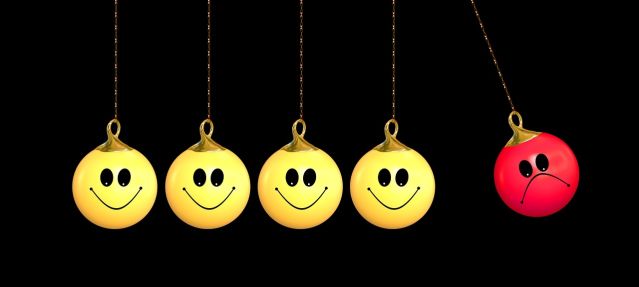CONFIDENCE- Proactive Choice and the Emotional Reaction. The Jekyll and Hyde of well-being.

KEY POINTS-
- Making choices enables us to assert a level of control over the outcomes we experience in our lives.
- The choices we make play a role in how much we trust in our ability to effect positive change in our lives.
- Emotional reactions inhibit our ability to consider the needs of others, affecting relationship dynamics.
- Our inner voice fuels our negative reactions, keeping us stuck and distrustful of ourselves and our abilities.

Choice is a proactive, self-motivated action that enables us to assert a level of control over the outcomes we experience in our lives. Our choices are individual, a blueprint of who we are and what we want, as well as a reflection of what we can offer the world around us.
The choices we make influence our self-perception of whether or not we can trust ourselves. Our ability to make a good choice, defined as one that results in a good outcome for us, takes place when we consider our own needs and the needs of others before taking action.
Every social situation involves the participation of a minimum of two people, both of whom inherently have different perspectives. If, whilst making a choice, we consider the other person's feelings, the interaction will likely conclude with a good outcome for both parties. This improves relationships because the more our actions reflect our consideration of another person's needs, the more they feel understood and want to continue to engage with us.
When we know that someone is interested in interacting with us because of our proactive choice, we feel good and begin to trust in our ability to interact again. And so the cycle repeats in a reciprocal fashion. This cycle forms the building blocks of meaningful relationships, which, in turn, shapes our perception of the value we bring to the world around us. Positive perception promotes emotional well-being. It sounds simple, right? Take a moment, think it through, make a proactive choice, and all will be well.
In truth, more often than not, we find it hard to stop and consider the best way to approach a given situation, especially when we feel angry, have made a mistake, or feel disappointed. Our feelings trigger an emotional reaction that inhibits our ability to consider the needs of others. Our focus remains on our grievance alone.
An obvious negative outcome of an emotionally driven reaction would be an ensuing exchange of words that may or may not lead to an argument. This certainly wouldn't be a pleasant experience. However, there are other negative outcomes that naturally ensue that are far more damaging in the long term.
In the same way that a positive social interaction develops our self-trust and confidence, negative social interactions can diminish it. We lose trust in our ability to interact effectively and consider avoiding engaging in future interactions a safer bet.
Such avoidance inhibits the acquisition of social skills that are developed only through exposure to experience, making this strategy far from a safer bet in the long term. This cycle is perpetuated by a critical inner voice that reinforces our distrust and lays the foundation for social withdrawal and isolation.
An inner voice may be both positive and negative, yet in order to listen to a positive dialogue, we need to make a proactive choice that we want to do so. We know, however, that this isn't easy to do when we feel bad. We can all recall a difficult interaction whilst at work or with a friend, where we thought, "Maybe I overreacted," "We all make mistakes; why did I have to lash out?" or "Argh, next time I see them it's going to be so awkward."
It doesn't take too long to transition from a mild self-critique to a more substantial variety: "I'm such an idiot. I always say the wrong thing. Next time I should just keep my mouth shut."
Sound familiar? Consider the proactive choices you can make to avoid this self-sabotaging cycle.
- Questions and Answers
- Opinion
- Story/Motivational/Inspiring
- Technology
- Art
- Causes
- Crafts
- Dance
- Drinks
- Film/Movie
- Fitness
- Food
- Spiele
- Gardening
- Health
- Home
- Literature
- Music
- Networking
- Other
- Party
- Religion
- Shopping
- Sports
- Theater
- Wellness
- News
- Culture
- War machines and policy

